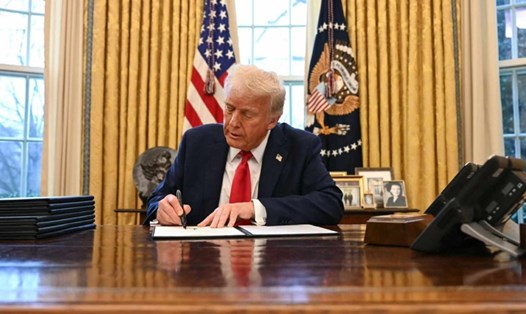President Donald Trump signed an executive order sanctioning the International Criminal Court (ICC), accusing the agency of "unlawful and baseless actions against the United States and our close ally Israel."
President Trump's sanctions against the ICC include imposing financial and visa restrictions on individuals and relatives of individuals who have assisted the ICC in investigating U.S. citizens or allies.
President Trump signed the ICC sanctions while Israeli Prime Minister Benjamin Netanyahu was visiting Washington.
Last November, the ICC issued an arrest warrant for Netanyahu on charges of war crimes in Gaza. Israel has denied the charges. The International Criminal Court also issued an arrest warrant for a Hamas commander.
A fact sheet released by the White House on February 6 accused the Hague-based International Criminal Court of creating “shameful moral equivalence” between Hamas and Israel by issuing arrest warrants at the same time.
President Trump's executive order states that the ICC's recent actions "set a dangerous precedent" that endangers Americans, putting them at risk of "harassment, abuse, and possible arrest."
“This malign conduct threatens to violate US sovereignty and undermine the national security and foreign policy interests of the United States government and our allies, including Israel,” the order said.
The United States is not a member of the ICC and has repeatedly rejected any jurisdiction of the organization over US officials or citizens.
The International Criminal Court was established in 2002 – following the breakup of Yugoslavia and the genocide in Rwanda – to investigate alleged atrocities. More than 120 countries have ratified the Rome Statute, the document that established the ICC. Another 34 countries have signed it and may ratify it in the future. Neither the United States nor Israel is a party to the Rome Statute.
The ICC is a court of last resort, with jurisdiction to intervene only when national authorities are unable or unwilling to prosecute.











